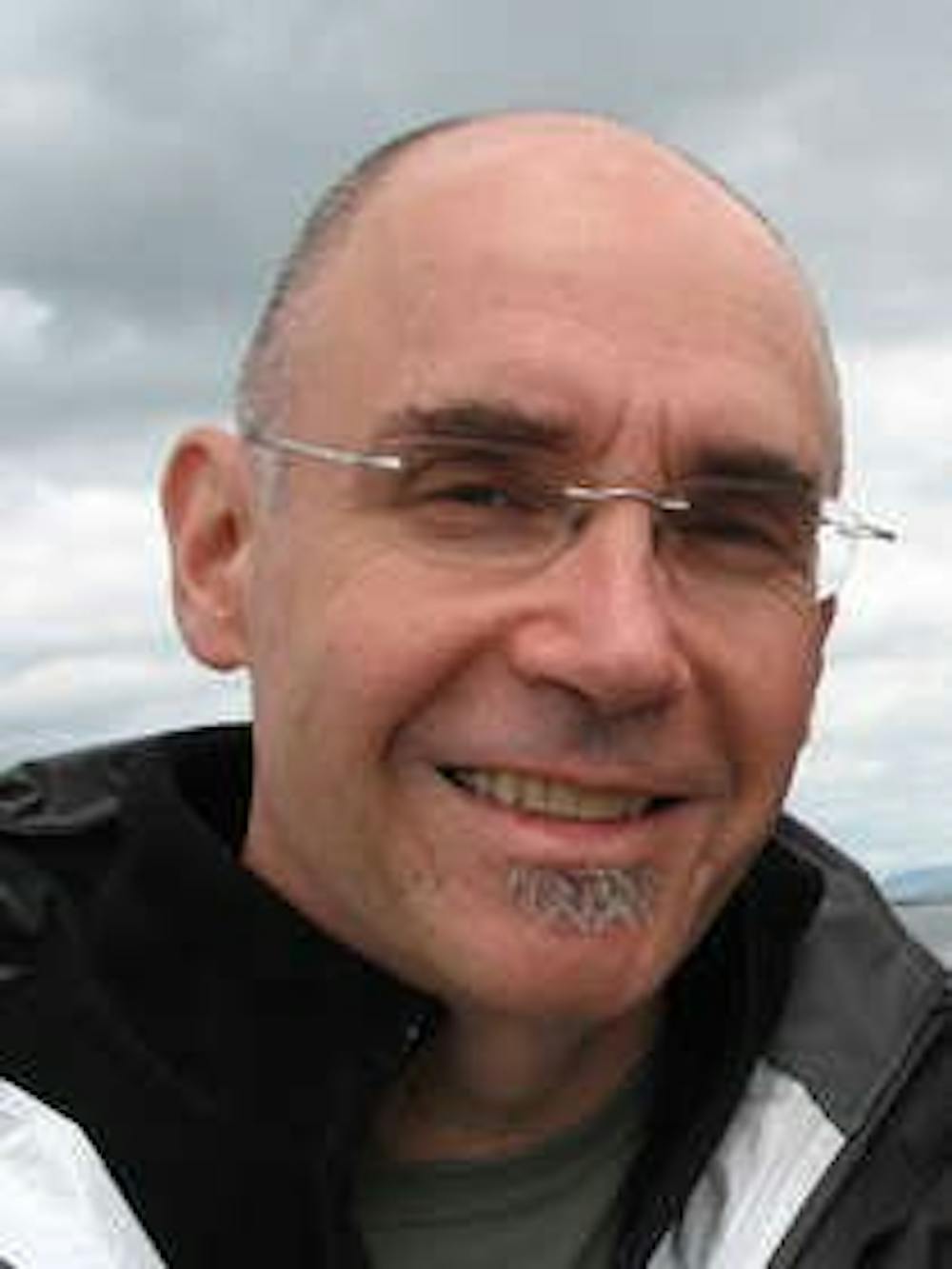Poet David Rivard is visiting Thursday to read at Walter Hall Rotunda.
Poetry is an important expression because it showcases the ability of words to evoke in each reader unique answers to the questions that letters can ask, something that poet, David Rivard, prides himself in.
Rivard, an acclaimed poet from Massachusetts, will read in Walter Rotunda at 7:30 p.m. on Thursday as a part of a three-day stay at Ohio University. His honors include a 2001 Guggenheim Fellowship and seven published poetry collections, his most recent being Otherwise Elsewhere.
Mark Halliday, poet and Ohio University English professor, is familiar with Rivard’s work.
“I'm interested in how he gets four or five different, seemingly random facts or images into the same poem,” Halliday said. “His poetry is of sharp-edged quickness and thoughts jostling together.”
Jamie Hunyor, a fourth-year English major, plans on attending.
“I’m excited for the reading,” Hunyor said. “In my form and theory class we’ve been reading Rivard, and he’s actually coming in to talk to us. It will be really cool to have a actual conversation with a modern poet.”
Rivard acknowledges the significance of perception in the writing process.
“It's important, if you're a writer, to know the nature of your mind; I have an associative mind, and it tends to make unlikely connections,” Rivard said.
“I've developed methods of drafting that allow association to take control. I let the music of language dictate what goes in first. Then I develop structures that hold all that wildness and energy in place. I want a poem to seem spontaneous and controlled, inevitable, like it was the one thing that had to be said.”
In the last 60 years, poetry has shifted artistically, emphasizing the immediacy of a moment. This shift was spearheaded by the New York School poets, led by Frank O’Hara, a writer who claimed that poetry should be personal and between two people instead of two pages.
O’Hara’s off-the-cuff poetry was a strong influence on Rivard.
“When my daughter was born, I had to develop a new way of writing that was more immediate and interested in the present,” Rivard said. “So I read writers who could help with that: William Carlos Williams, Frank O'Hara, Denise Levertov; everyone interested in the spontaneity of a moment. Also, Arthur Rimbaud and Jean Follain have been big influences over the past 20 years.”
A belief held by the famous 19th century French poet Arthur Rimbaud was that a poet was a “seer” — a human medium for creative inspiration. It is an idea that Rivard echoes humorously.
“I think this a lot, that I'm being given a message by someone or something that I don't know,” Rivard said. “Most of the time I'm not smart enough to understand the message, but I'm flattered to be getting it.”
Sn002310@ohio.edu






